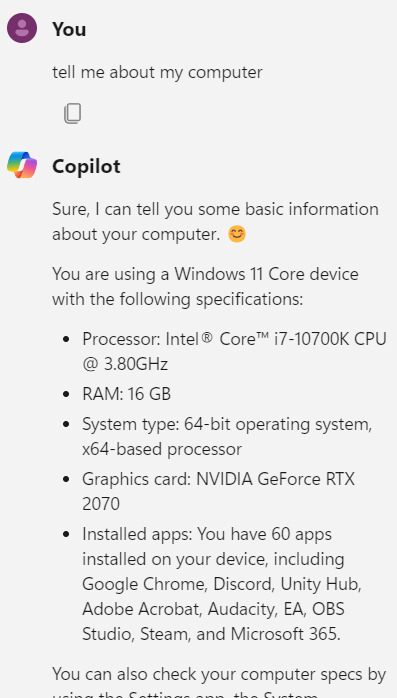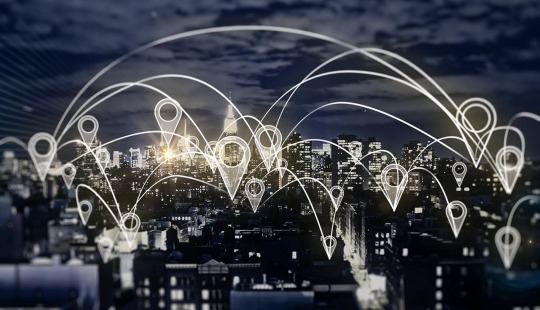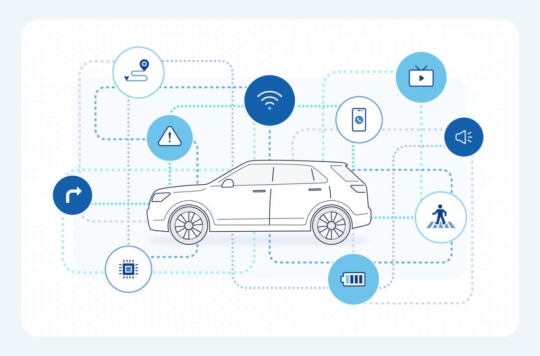#geolocation data
Text








“Smart Cars” + Capitalism = a very dystopian future
Ford’s patent ranges from having a “self driving” car return itself to the dealership if you miss a payment, to having the car abruptly disable itself, to “minor inconveniences” like having the air conditioner or heater stop working until you voluntarily return the car.
Don’t think for one second that all carmakers aren’t thinking about doing the same things. Especially Tesla Motors.
Carmakers are already trying to monetize even the most basic features, like charging monthly fees for the ability to use your car’s seat warmers.

Anyway, nobody does more to radicalize people against capitalism more than greedy capitalists.
#fsd#self driving cars#smart cars#ford#volkswagen#capitalism#corporate greed#greed#tesla#ford motor co#spyware#geolocation data#geolocation tracking
4K notes
·
View notes
Link
Bulk GEO IP Locator - Find Geolocation Data for Multiple IPs
#ip checker#ip locator#geo ip#bulk IP addresses#Bulk GEO IP Locator#geolocation data#multiple IPs#IP lookup#geolocation tool#IP geolocation#IP address location
0 notes
Text
What is Spatial Data
If you are looking for more information on Spatial data and how it can help your business, look no further than AirSage.

0 notes
Text





Vicious August 1998
#I know!#a rare post of old visual kei stuff from me!#the context for this is that on one of my trips after COVID-19#I tried to find a substitute store for Trio2 which had shut down in Nakano Broadway#I had read that there were some magazine shops at least in Ochanomizu#I didn't have data and tried to navigate with my geolocation skills but ended up asking a sort of old officer just to be sure#he said something along the lines of 'but I'm just an old man...'#so a younger man came to his and my rescue and offered to help me#he understood little English and used Google Translate to communicate with me for the most#turned out he was a magazine enthusiast himself and he took me to a couple of stores#they all had only antique magazines like nothing past 2005#he found everything that had Dir en grey at each of those stores#I felt bad after a while because it was not at all what I was looking for#so I ended up buying the Xth magazine that he showed me#see above hah#just so you know I was really close to the store just with my skills#Dir en grey#young#scans#magazine#visual kei#vkei#Kyo#Kaoru#Die#Shinya#Toshiya#makeup#I'm not sure why I'm such a fan of that middle finger nail paint
469 notes
·
View notes
Text
Whether you call it “tattleware,” “bossware,” or “surveillance capitalism,” Sen. Bob Casey (D-Pa.) has had enough of exploitative workplace monitoring technologies. Late last week, Casey and a handful of other Senate Democrats introduced the Stop Spying Bosses Act, which would help protect workers from intrusive employer surveillance both on and off the clock.
The legislation would require “timely and public” disclosures by companies about the data they’re collecting on employees, prohibit businesses from using surveillance practices that obstruct union organizing or monitor workers while they’re off the clock, and create a new division of the Department of Labor to regulate workplace surveillance. Sens. Cory Booker, John Fetterman, Elizabeth Warren, and Brian Schatz are cosponsoring the bill, which has also garnered support from some major labor groups.
Workplace surveillance has been a growing area of concern for Democrats in the past few years, as the shift to remote work during the pandemic has prompted increased use of employee monitoring technologies. Since the onset of the pandemic, the percentage of large companies that digitally monitor their workers has doubled, to more than 60%. At a time when managers can no longer keep an eye on workers in the office, they’ve increasingly relied on technologies such as keylogger software, geolocation tools that track workers’ physical movements, and even software that monitors worker attentiveness with webcams, using biometric data to scrutinize minute body movements and facial expressions.
Currently, federal law gives workers few protections from these kinds of surveillance practices. The Electronic Communications Privacy Act of 1986 does have some safeguards against workplace monitoring, but it has wide-ranging exceptions that allow employers to keep tabs on virtually all communications for “legitimate business purposes.” Currently, no federal law requires employers to disclose that they are monitoring workers, though individual states are increasingly taking steps to protect workers’ rights. In May 2022, for example, New York passed a law requiring private companies to publicly disclose whether employees will be electronically monitored, following similar legislation in Delaware and Connecticut. In California, a bill introduced last year would eliminate tools like facial recognition and emotion recognition technologies from the workplace.
The National Labor Relations Board is beginning to address the issue at the federal level, too. Last fall, the agency’s general counsel, Jennifer Abruzzo, issued a memo indicating that companies have overreached with their aggressive surveillance. She recommended that the NLRB impose a requirement that employers tell workers about the surveillance tools they use to monitor them, the justifications for those tools, and how they use the information they collect from workers.
In the memo, Abruzzo also acknowledged “abusive electronic monitoring” could interfere with employees’ right to organize a union or engage in other protected labor activities. As I’ve written before, unions around the country are currently in the middle of negotiating how data collected on workers can be used by employers. At companies like Amazon, unionization efforts are being driven partly by a culture of relentless workplace surveillance—and in some cases employers are responding to unionization efforts by doubling down on digital monitoring. Whole Foods, which is owned by Amazon, used heat maps to identify its stores at risk of unionization, according to Insider.
While the bill isn’t likely to pass in a divided Congress, it’s a sign that the proliferation of workplace surveillance during the pandemic is finally getting more national attention. “As the power imbalance in workplaces continues to grow, employers are increasingly using invasive surveillance technologies that allow them to track their workers like pieces of equipment,” Casey said in a statement introducing the legislation. “The Stop Spying Bosses Act is a first step to level the playing field for workers by holding their bosses accountable.”
#us politics#news#mother jones#2023#Sen. Bob Casey#Stop Spying Bosses Act#Department of Labor#workplace surveillance#sen. cory booker#sen. John Fetterman#sen. elizabeth warren#sen. Brian Schatz#keylogger software#geolocation#biometric data#Electronic Communications Privacy Act of 1986#National Labor Relations Board#Jennifer Abruzzo#Democrats
65 notes
·
View notes
Text
Windows LLM "Copilot" with Shitty Privacy
Windows has decided to place an experimental version of Bing AI into Window's task bar. It can access data about your computer and give it back to you, including what apps are downloaded onto the device and your computer's specs.
However, it's just as bad as any other LLM when it comes to hallucinating- on my first try it claimed it could search for files and open files for me. I told it it could not, it argued it could and that it "knows what it can and cannot do," and then hallucinated files for me. Further pushback just made it get repetitive and show "fear" that it "hoped you don't think I'm lying."
But the worst part is is Microsoft's shit privacy policy for this thing. For some business apps its "commercial data protection" is turned on for free, but using Copilot directly on your computer itself- well, fuck the consumers' data, I guess. In fact, clicking "privacy statement" in Copilot takes you to Microsoft's general privacy statement- one which does not mention Copilot in it at all. And, the Copilot for Windows privacy page is so sparse that it doesn't even specify if it keeps and uses your input to train the LLM, which is a basic fucking statement that any usage of LLM should have.
Just another shitty, rushed, useless LLM feature that nobody really needs, and which has flimsy data protection. Turn it off if you can. But wait, that's right, you can't! :^) you can only "hide" the icon, unless you want to pop open the command prompt! Eat dick Microsoft >:P

#LLM#microsoft#chatbot#large language model#AI#i get that microsoft already has my data by using a windows#but i don't want their CHATBOT to have access to it especially with such flimsy data protection for regular users!#bing AI ALREADY scrapes and can geolocate you by request. DAMN i dont want that thing ALSO on my laptop at all times!!#i think i was more shocked that it could see the apps i had installed by name and repeat them back to me....
1 note
·
View note
Text
Empowering Apps with IPstack Location Services API for Accurate Geolocation Data
In today's digital landscape, location-based services are at the forefront of enhancing user experiences and delivering valuable information. IPstack Location Services API, with its rich set of features, is a game-changer for developers seeking precise IP geolocation data and GPS coordinates. Let's dive into how this powerful tool can transform your applications.

IPstack Location Services API: This versatile API offers an easy and efficient way to obtain IP geolocation data. Whether you need GPS coordinates for tracking, location IP lookup for user personalization, or a free IP lookup API for cost-effective solutions, IPstack has you covered.
Accurate IP Geolocation Data: With IPstack, you can access highly accurate IP geolocation data. This means you can pinpoint a user's location down to the city or even the neighborhood, providing personalized content and services based on their geographical location.
Precise GPS Coordinates: For applications relying on GPS data, IPstack Location Services API delivers pinpoint-accurate GPS coordinates. Whether you're building a fitness app, a delivery tracking system, or a social networking platform, this level of accuracy is indispensable.
Location IP Lookup: Need to perform location IP lookup? IPstack's API simplifies the process. It allows you to identify the location of any IP address, making it ideal for security applications, targeted marketing, or compliance verification.
Free IP Lookup API: Budget-conscious developers will appreciate IPstack's free IP lookup API. It provides a cost-effective way to access essential IP geolocation data without compromising on accuracy. This option is perfect for startups and small businesses looking to optimize their location-based services.
API IP GeoLocation: If you're seeking a comprehensive solution for IP geolocation, IPstack is the answer. Its Location Services API offers seamless integration, enabling your application to harness the power of precise geolocation data. Whether you're building a weather app, a restaurant finder, or a travel planner, this API can take your project to the next level.
In conclusion
, IPstack Location Services API is a versatile and valuable tool for developers. It empowers applications with accurate IP geolocation data, GPS coordinates, and location IP lookup capabilities. Plus, with a free IP lookup API option, it caters to a wide range of needs and budgets. Embrace the power of geolocation and provide your users with personalized, location-based experiences by integrating IPstack into your projects. Elevate your apps today with IPstack Location Services API!
1 note
·
View note
Text
How Indian Companies are Using Location Data to Improve Access and Optimize Commercialisation
Location intelligence is becoming an increasingly important tool for healthcare companies in India. By leveraging location-based data and analysis, these companies can gain valuable insights into the healthcare needs of different regions and communities and develop targeted strategies to address them.
Read Full Blog Here: https://www.anervea.com/how-indian-companies-are-using-location-data-to-improve-access-and-optimize-commercialisation/
One way that healthcare companies in India are using location intelligence is through geospatial analysis. By mapping healthcare data such as patient demographics, disease incidence, and treatment outcomes, companies can identify patterns and trends that can inform their strategic decisions. For example, a company may use geospatial analysis to identify areas where a certain disease is more prevalent, or to understand why certain treatments are more successful in certain regions.
Another way that healthcare companies in India are using location intelligence is through spatial data visualization. By creating interactive maps and visualizations, companies can communicate their findings to stakeholders in a clear and intuitive way. This can help them identify areas of opportunity and make data-driven decisions on how to allocate resources and expand services.
Location intelligence is also being used to optimize healthcare delivery. By analyzing data on population density, transportation, and accessibility, companies can identify areas where healthcare services are needed most. This can help them develop targeted strategies to reach underserved communities and improve access to healthcare.
In addition, location intelligence can also be used to analyze healthcare cost and resource allocation. By analyzing data on healthcare expenditure, companies can identify areas where costs are high, and resources are scarce. This can help them identify areas where they can reduce costs and improve efficiency.
Overall, location intelligence is becoming an essential tool for healthcare companies in India. By leveraging location-based data and analysis, these companies can gain valuable insights into the healthcare needs of different regions and communities and develop targeted strategies to address them. This can help them improve access to healthcare, optimize delivery and resource allocation and drive efficiency in their operations.
Visit our website now: https://www.anervea.com/

#LocationData#IndianCompanies#commercialization#geolocation#indian market#market insights#locationintelligence#Location#location analytics market#healthcare#data analytics
0 notes
Text
FTC Accuses Data Broker of Selling Sensitive Location Data
FTC Accuses Data Broker of Selling Sensitive Location Data
Home › Privacy
FTC Accuses Data Broker of Selling Sensitive Location Data
By Associated Press on August 29, 2022
Tweet
Federal regulators have sued a data broker they accuse of selling sensitive geolocation data from millions of mobile devices, information that can be used to identify people and track their movements to and from sensitive locations, including reproductive health clinics, homeless…
View On WordPress
0 notes
Note
Hi! I really love ur content ^_^ I do however want to point out that a LOT of what's being spread on tumblr about the KOSA bill is misinformation (including what you reblogged earlier today). I work in social media research and my lab has been following the bill for quite some time; the bill is primarily aimed at reducing targeted advertising and exploitation of children under 13 years old (specifically, it aims to make transparency mandatory on developers' ends, and to start limiting people's ability to communicate with children, preventing people from viewing children's personal data, limiting positive reinforcement for staying on apps, & restrict geolocation sharing of children's accounts). There's also been a LOT of people rbing posts that say you'll be required to verify your accs with govt id, but that is mentioned nowhere in the bill. I know that this isn't directly related to what your blog is about but given how big the spread of misinformation about KOSA is, I wanted to reach out. I am also more than happy to elaborate more on what IS stated in the bill if you (or anyone else) wants that!!
Hrm. I'll delete the post then, id appreciate others weighing in on this because I'm not american and really don't know enough about kosa
396 notes
·
View notes
Text
(5) Idaho's first 'abortion trafficking' arrest
Last week, an Idaho teenager and his mother were arrested for bringing the teen’s girlfriend out-of-state for an abortion. The pair were charged with multiple felonies, including second degree kidnapping, for taking a minor under 16 years-old “with the intent to keep or conceal [her] from her custodial parent...by transporting the child out of the state for the purpose of obtaining an abortion.”
The 15 year-old, identified in court records as K.B., was living in Pocatello with her 18 year-old boyfriend Kaydn* and his mother, Rachael, when she became pregnant. In May, they brought her to Oregon, where K.B. received abortion medication. Idaho’s ‘abortion trafficking’ law went into effect that same month.
The investigation into the mother and son began shortly after K.B.’s mother reported to police that her daughter had been sexually assaulted. Though K.B. became sexually active when Kaydn was 17 years-old, he turned 18 during the course of their relationship; so in addition to the kidnapping charge, court documents show that he’s also been charged with rape and sexual exploitation of a child.
During this conversation with law enforcement, K.B.’s mother also reported that her daughter had been taken to Oregon for an abortion without parental permission. This sparked a far-reaching investigation that included accessing geolocation data to place the teenager at a Planned Parenthood clinic in Bend, and tracking her movement with Kaydn and Rachael from Idaho to Oregon. (A search warrant, for example, shows that law enforcement accessed the phones of all three, and found that they were pinging cell towers in the area of the clinic.)
318 notes
·
View notes
Text


How automakers make use of data collected by connected cars is coming under scrutiny in California. On Monday, the California Privacy Protection Agency announced that it will review the data privacy practices of connected vehicle manufacturers. The agency is empowered to do so thanks to a 2018 state law, the California Consumer Privacy Act.
"Modern vehicles are effectively connected computers on wheels. They're able to collect a wealth of information via built-in apps, sensors, and cameras, which can monitor people both inside and near the vehicle," said Ashkan Soltani, CPPA's executive director.
"Our Enforcement Division is making inquiries into the connected vehicle space to understand how these companies are complying with California law when they collect and use consumers' data," he said in a statement.
Connected cars are fast becoming ubiquitous—it may well be impossible to buy a new car, truck, or SUV in 2023 that doesn't have at least one embedded modem in it. In the mid-2010s, many OEMs saw dollar signs at the prospect of monetizing data collected by their deployed vehicle fleets, and unlike with cellphones, it can be hard or impossible to disable location tracking in one's car.
"Under the California Consumer Privacy Act, geolocation is considered personal information. People have the right to say no to being tracked in their cars, but it is unclear if car companies are providing this right," said Justin Kloczko, a privacy advocate at Consumer Watchdog. "These companies know more about us than we know about ourselves, and they’re the ones in control of our personal information, not us," Kloczko said.
(continue reading)
#politics#location tracking#smart cars#privacy rights#data mining#spyware#geolocation data#connected cars#data protection#data privacy#consumer protection#geolocation tracking
45 notes
·
View notes
Text
i do think the geoguessr guy gets like. way overhyped, just because 1) most clips of him getting very fast or accurate guesses are cherrypicked from longer streams where he has more reasonable results on average, and 2) the harder challenges he takes on are, while cherrypicked too, also usually on set 'maps' where there's a limited number of locations, such that it's possible to memorise (i.e. 'this grass looks malaysian' is referring to the already-seen grass of the one specific malaysian location in the set).
i think his longform techniques for geolocating images are useful, such as learning identifying regional features in infrastructure and foliage, orienting based on sunlight, and performing searches of satellite maps and streetview data once the region is narrowed down. even then, though, he has a very yankee viewpoint - upon being shown a very suburban single-family, clearly usamerican home by an interviewer, his first response was to say something (incorrect) about the telephone poles; and in the same interview misidentified polish as being 'cyrillic' - which seems limiting.
people tend to get very defensive over him, because they like the idea of genius savants, and question why he isn't being hired by the CIA or laud him for 'being 4chan' or whatever - but, in reality, the flashy skills just come down to practice, and the actually-useful longform skills are standard intelligence-gathering techniques that you yourself can learn and utilise. and, i mean, you should! think of an old family home, or some other location from your childhood, and try to locate it on google maps, remembering nearby landmarks and key features. keep mental note of the cardinal directions when you're out and about, so you can remember 'that was on a north-south road, on a hillside' later. it's fun, and on occasion, useful. [spacebar clack]
73 notes
·
View notes
Text
Location Intelligence 101
Companies can use location intelligence to make better decisions and increase ROI in the future. AirSage is your one-stop destination.

0 notes
Text
Bolsonaro administration spied on 1,800 opponents

Feds identified more than 30,000 instances of illegal use of FirstMile, an Israeli software that tracks cellphone geolocation data. Purchased in 2018 by the Brazilian Intelligence Agency (Abin), it was used to monitor at least 1,800 opponents of the Jair Bolsonaro administration, such as politicians, journalists, and lawyers. The names of the victims were not revealed yet.
Two Abin officials have been arrested, five were temporarily removed from office, and USD 171,800 in cash was seized from the home of one of the Abin top officials on Friday.
Twenty-five search warrants were carried out in five Brazilian states. With the operation, one of the Abin buildings in Brasília was sealed while the Feds searched every room for evidence. The agents arrested were on disciplinary leave and used information gathered through FirstMile to blackmail other officials and avoid being fired.
Continue reading.
124 notes
·
View notes
Text
in psych abolition news for the week:
Wildflower Alliance is having a free event on Monday, January 22rd, 2023 from 2-4pm EST called 988: Is it helping more than Hurting?
"988 has been promoted as our nation’s answer to access issues for crisis support. But, is 988 helping more than hurting? Is geolocation being used and if yes, how and when? How has 988 impacted use of force? Are 988 operators trained properly to talk about issues like self-injury? What information is and isn’t being shared transparently? Join us to learn more about these points and more!"
Jess Stohlmann-Rainey, Emily Wu Truong, and Rob Wipond will be speaking.
I'm really excited about it--you all know how much I hate 988, and the lack of data on it frustrates me so fucking much. So I'm excited to see what work some other anticarceral mental health activists have been doing around 988!
the sign up link is here!
#personal#mad pride#mad liberation#surviving psych#psych abolition#antipsych#neurodivergence#mental illness#madpunk
57 notes
·
View notes